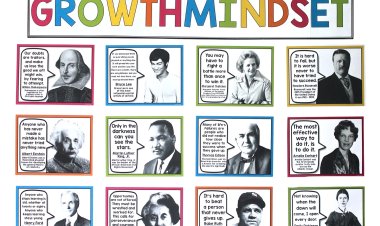What Is Self-Awareness?
Being self-aware is all about having an understanding of your own thoughts, feelings, values, beliefs, and actions. It means that you understand

Although self-awareness is fundamental to who you are, it is not the primary focus of your attention at all times. Instead, self-awareness develops gradually over time and emerges at various times, depending on the individual and the circumstances.It's an early indicator of who you are as a person. Self-awareness is a developed trait, not an innate one. However, there is some evidence that even newborns have some degree of self-awareness.

By engaging in actions like the rooting reaction when something brushes against their face, infants demonstrate an awareness of their own uniqueness and the uniqueness of the people around them. Also, studies have shown that infants can tell the difference between self- and non-self-touch immediately after birth.
Self-Awareness Development
Studies show that at 18 months of age, children have a considerably more developed sense of self-awareness than they did at one year of age. Lewis and Brooks-Gunn conducted research to determine what factors contribute to the maturation of self-awareness.
A red dot was placed on an infant's nose, and the kid was then held in front of a mirror for observation. To demonstrate their self-awareness, children who could identify themselves in the mirror would touch their own noses instead of the reflection.

Children younger than a year old almost never choose to touch their own nose over their reflection in a mirror, according to research by Lewis and Brooks-Gunn.
Between the ages of 15 and 18 months, only around 25% of newborns reached for their own noses, but between the ages of 21 and 24 months, about 70% of infants did so.
It's possible that even very young toddlers have different types of self-awareness, and it's vital to keep in mind that the Lewis and Brooks-Gunn study only suggests visual self-awareness. Researchers Lewis, Sullivan, Stanger, and Weiss proposed that self-awareness and the ability to think about oneself in relation to other people are necessary for effective emotional expression.
The anterior cingulate cortex, located in the frontal lobe, has been hypothesized to play a significant role in the maturation of self-awareness. Brain imaging studies have also shown that this area becomes active in people who have developed self-awareness.
Types of Self-Awareness
Psychologists often differentiate between "public" and "private" forms of self-awareness.
Public Self-Awareness
This variety develops when individuals care about how they show up to the world. When people find themselves in the spotlight, a heightened sense of self-awareness often results.
People with this level of insight into themselves tend to be more compliant with societal standards. It's human nature to attempt to put our best foot forward when we know we're being observed and judged.
Private Self-Awareness
This kind occurs when a person has a sudden, internalized realization about some facet of their identity. Observing one's reflection in a mirror is an example of a personal form of self-awareness.
How to Improve Your Self-Awareness
So, how can one develop greater self-awareness? There are numerous methods by which one can cultivate an awareness of the present moment and the feelings it evokes.
Meditation
When you meditate, you don't have to worry about changing anything; instead, you can focus on simply observing your thoughts and feelings as they arise.
Perhaps you've realized that you tend to clench your jaw when stressed or that your preoccupation with the future makes it difficult for you to enjoy the here and now. All of this is helpful data for learning about your personality and habits.
Journaling
Keeping a journal is a great method to reflect on yourself and get insight into your thought processes, patterns of behavior, and potential growth areas in your life. It's a great approach to reflect on your experiences and the people in your life.
Talk Therapy
Cognitive behavioral therapy is a type of talk therapy in which a therapist helps you change unhelpful ways of thinking and acting.
For instance, if you know what's triggering your negative ideas, you might work to replace them with more helpful ways of thinking and reacting.













